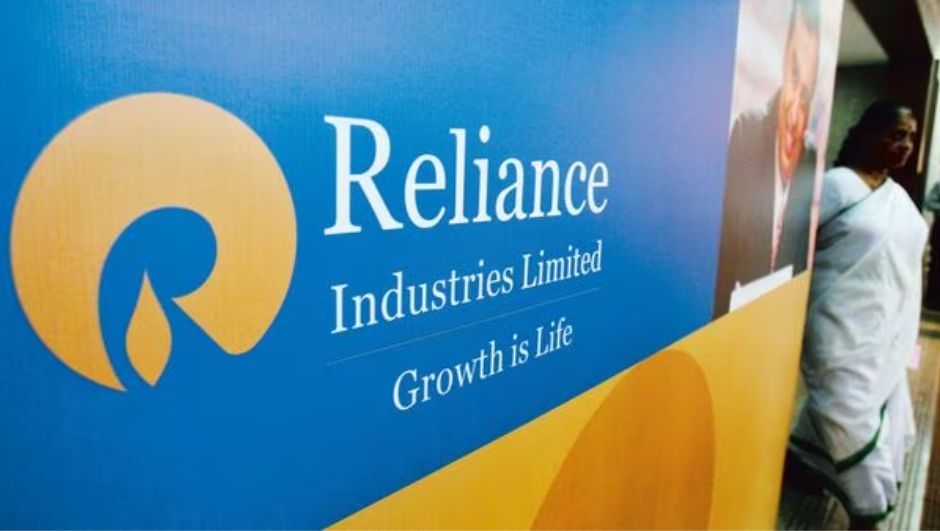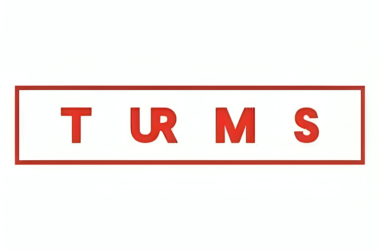New Delhi: For better or for worse, Indian business is dictated by family-owned conglomerates. A distinct advantage of such conglomerates is that they help get around the most pressing issue businesses face: Focus on short-term results.
It is unthinkable to imagine any public company taking a bet on renewable energy in the manner Reliance Industries Ltd (RIL) or Adani Group have undertaken.
At the same time, succession planning is the worst nightmare for shareholders in family-owned conglomerates. Whether GenNext is equal to the challenge and shares the same visionary zeal and leadership as their elders will be keenly watched as the years unfold.
Winds of change are sweeping at the top of some conglomerates such as Reliance and Birlas. More conglomerates could see succession planning.
A few trends are playing out across Reliance, Tata, and JSW Group. Each of these groups carved out new businesses (read Jio Financials, Tata Technologies and JSW Infrastructure) and allowed these businesses to run as independent entities. This development should pick up pace in the future with more businesses from Adani, Reliance, and Tata going public.
Finally, for management theorists, many of who proclaim conglomerates as duds and run the risk of being disrupted by technology and startups, homegrown conglomerates are proving to be one of a kind. Be it Tata or Reliance, the heartening thing is that these groups recognize the importance of technology.
Mint puts the spotlight on eight conglomerates that continue to retain significant influence over large parts of the economy. Outside these eight, a few more (Vedanta, for example) could hog the limelight next year.
There are distinct areas of focus for some of them. Adani is taking the infrastructure bet, while Reliance doubles down on the digital story. Tata has interests in both. Indeed, like in the past, some of them could also be pitted against each other, such as the interests of Reliance, Adanis, JSW and Tata could overlap in renewable energy or consumer business. Or, a Murugappa taking on Tata in semiconductors. The groups are rolling out digital initiatives, which are too nascent even to comment on at this stage.
Not all of the bets of each of these groups may succeed. The separation of the leaders from laggards in this battle for supremacy between these Big Boys will hinge on execution.
RELIANCE INDUSTRIES
Reliance, the biggest and arguably the most dominant business house, finally started its succession planning exercise when chairman Mukesh Ambani’s three children joined the board of the flagship entity. Ambani returned to the spotlight this year after staying away from the public gaze for all of 2022.
Last year, RIL accounted for a fifth of total revenue and 11% of net profits of the BSE30, or Sensex. In May, it spun out Jio Financial Services, the shadow bank. It has signalled ambitions beyond lending: Reliance stitched a partnership with BlackRock, the world’s largest money manager, and has announced it will invest $150 million in the asset management venture.
Two businesses inside the group that have already achieved jaw-dropping size are the telecom and retail businesses. In the seven years of its existence, the telecoms business has built a customer base of 439.3 million. It ended with $17 billion in revenue last year. The retail business, which counts over 18,000 stores, made $31.7 billion in revenue last year. This makes it bigger than TCS.
The petrochemicals business remains the mainstay, accounting for 60% of the group’s earnings before interest and taxes. Its renewable-energy arm has grand plans for solar power and green hydrogen. It will compete in renewables against Adanis, a formidable rival. In 2021, discussions between Reliance and Saudi state oil firm Aramco for the world’s largest oil exporter picking a stake in the Mumbai-headquartered firm’s oil-to-chemicals business, ended without any deal. Some believe a similar deal could again be renewed.
ADANI GROUP
2023 was a roller coaster ride for the Ahmedabad-based conglomerate. The company started the year planning to complete a sale of shares worth ₹20,000 crore in its flagship business, Adani Enterprises. That got pulled after a devastating report from Hindenburg Research, the US-based short seller. For a few weeks, all 10 listed Adani companies were hitting lower circuits, and soon, the shares of each company had crashed by more than 60%.
While the group denied all the allegations of stock manipulation and accounting fraud, as levelled by Hindenburg, the business started to pare down some of its debt. The group did this by the promoter selling shares in a few of the listed entities and selling majority shares in a few privately held ones (Bain Capital bought a majority stake in Adani Capital and Adani Housing Finance in July). Adani got a big vote for confidence from GQG Partners, which invested close to $2.6 billion across six public companies of the group. Later in November, the group got a $550-million investment from International Development Finance, the finance arm of the US government, to build a port in Sri Lanka.
As the year drew to a close, the group regained its mojo, and its shares showed a recovery. But the Hindenburg report did make Adani Group bring down its debt-to-ebitda ratio to a manageable level of 2.5 times at the end of September 2023 as against 3.3 times at the end of December 2022. Significantly, Adani Group appears to be exiting from the non-infrastructure business—it is currently evaluating bids for its stake in the FMCG joint venture with Wilmar Group. Adani’s execution prowess will be tested fully by its ability to redevelop the Dharavi project, with the opposition expected to raise its ante on this politically sensitive topic to revamp Asia’s largest slums.
Next year, the group could expand its infrastructure business (read airports and ports) overseas.

TATA GROUP
The largest conglomerate (employs a little over 1 million), the Tata Group, is an elephant. Its over three dozen operating companies and nearly 300 subsidiaries brought $150 billion in revenue in the year ending March 2023. But under chair Natarajan Chandrasekaran, the group has shown that elephants can dance.
The Tata Group has taken a few bets, from becoming the first Indian iPhone maker in the country to planning how to set up semiconductor fabs. Tata Power’s planned $10-billion investment in renewable energy is sizeable.
The first five-year term of Chandrasekaran, or Chandra as colleagues address him, was all about exiting some businesses (telecom), writing off bad loans (nearly $10 billion) and laying out the next frontiers of growth for the group. His current, second five-year stint will show how some of the bets have played out.
Tata’s rising market share of electric vehicles in cars shows some of its decisions remain on the right path. Air India, the flag carrier it bought in 2021, placed a record order of nearly 500 planes from Airbus and Boeing. The Tatas had an early starter advantage on EVs, but in 2024, its rivals would join the fight for market share.
But there are other headaches. The group has pumped in over $2 billion into digital platforms and is trying to build a “super app”, Neu, allowing consumers to shop, travel and make payments. But its performance has been disappointing: estimates suggest fewer than 20 million users.
The crown jewel, Tata Consultancy Services (TCS), had its share of challenges. A change of guard at the helm followed by a recruitment scandal hit its reputation (and created a flutter inside Bombay House). The technology services sector is facing a slowdown; consequently, all IT services companies are expected to post their slowest growth in the current financial year. TCS’s performance is critical as it bankrolls many new bets at Tata Group.
Things to watch next year: An 18% stake in Tata Sons is held by the Pallonji family, which has pledged this stake with lenders to raise money to remain solvent. A failure to pay its creditors could provide an opportunity to Tata Sons if they want to buy back this stake.
THE BAJAJ GROUP
The Bajaj Group, one of the oldest conglomerates in India tracing its roots to freedom activist Jamnalal Bajaj, is also one of the better examples of a business house reinventing itself to remain relevant in the new millennium.
The company turned around its legacy automotive business that made the Chetak scooters of yesteryear to making highly popular performance motorcycles. Along the way, the company spawned a new financial services business that has become the conglomerate’s crown jewel today.
The year 2023 reminded the group that it again needs to pull up its socks and adapt to changing business realities. Automotive companies today can ill-afford to ignore the industry’s rapid move towards electrification. Bajaj Auto has paced its electrification journey conservatively, where even peer TVS Motor has overtaken it, not to mention the new entrants leading the market.
The key word here is “paced”. Its slower transition to electrification seems intentional. The coming year will show how the company handles the transition deftly and whether it maintains its consumer connections and enviable margins. The group’s consumer lending business dealt with its fair share of changing business dynamics, with rising competition from legacy lenders and the impending wild card entry of Jio Financial Services. The RBI’s move to increase the risk-weights for unsecured consumer lending as well as bank loans to non-banking financial companies like Bajaj Finance this year meant that not only will the company’s cost of funds go up, it will also require more capital to underwrite the same quantum of loans.
In addition, Bajaj Electricals and Mukand are transforming. In 2024, the company’s key challenges will include maintaining its stupendous growth rate as well as defending its turf from competition despite a fast-disappearing moat.
ADITYA BIRLA GROUP
The Aditya Birla Group has been India’s undisputed cement king. It has now found a strong opponent in the Adani Group, with the latter harbouring aspirations of dethroning UltraTech Cement as the country’s largest cement maker.
Competition intensified in 2023, with the two conglomerates pouring capital towards capacity addition at a rate far outpacing the demand. The two groups have also been eyeing the acquisition of smaller cement makers. UltraTech acquired Kesoram Industries’ cement assets, which investors appreciated, lifting its stock to an all-time high. Currently, UltraTech has a capacity of nearly 140 million tonnes per year, which is more than double that of the second-placed Adani Group.
While the company fiercely protects its position in one industry, it is equally determined to disrupt another. Grasim has invested significant capital in its upcoming paints business through the year, strategically placing six new manufacturing plants nationwide. The company wants its brand Birla Opus to become the second-largest paint maker in the country, overtaking well-entrenched players like Kansai Nerolac, and Berger.
The group also announced a ₹5,000-crore bet on the branded jewellery market in 2023. Novel Jewels will take on the likes of Tata’s Tanishq and Kalyan Jewellers.
Aditya Birla Fashion and Retail took a majority stake in TCNS Clothing in September, continuing its aggressive acquisition spree that includes designer labels Masaba and Sabyasachi.
The aggression was missing from the group’s telecom arm, Vodafone Idea, in its fight for market share with rivals Jio and Airtel. The company consistently lost customers throughout the year.
Corporate battles aside, the sprawling conglomerate undertook one of its most important exercises in 2023—succession planning. Ananya Birla, 29, and Aryaman Vikram Birla, 26, children of group chair Kumar Mangalam Birla, were inducted as directors onto the boards of multiple group companies, marking the entry of the fifth generation of the family in the $60 billion conglomerate.
The year 2024 will see the first-year report cards of the scions. The conglomerate also plans to make its much-anticipated paints entry in the coming year on which it has ₹10,000 crore riding. The group has not yet produced a market leader outside of its existing businesses, making its track record in starting new ventures inconsistent.
MAHINDRA GROUP
Back in 2021, Anand Mahindra entrusted Anish Shah as the boss of the Mahindra Group. Over the past two years, Shah has improved the capital allocation at individual companies in the Mahindra federation. Mahindra Group has exited 15 businesses, including South Korean automaker Ssangyong while improving the return on equity: 20% RoE last year against the stated 18%.
The performance of the car division has been impressive. It has drawn plans to launch five electric SUVs in 18 months starting December 2024, as the business estimates EVs to account for about a third of total car sales by 2027. To give shape to these bold plans, the company set up its EV arm, Mahindra Electric Automobile Ltd. This August, Singapore’s sovereign wealth fund Temasek put in $145 million, valuing the company at a little over $9 billion.
But the services business, including the technology services business, could prove to be a headache. Tech Mahindra finally had a new boss even as the operating margin crashed to 4.7% at the end of September. The new CEO, Mohit Joshi, is expected to articulate a new plan in June next year.
Mahindra Finance will have a new boss, too. Like Tech Mahindra, the finance business has not done enough—it is puny compared with Bajaj Finance.
The group has identified some businesses it expects to scale up in the coming years. But it looks unlikely that any of those businesses will show results in the coming 24 months.
JSW GROUP
JSW Group has interests across steel, cement, energy, and logistics. Its youngest business to go public, JSW Infrastructure, won support from investors as the stock soared 30% on the opening day, valuing the company at $4 billion.
At 90 million tonnes, JSW Infrastructure is less than a fourth the size of the leader, Adani Ports and Special Economic Zone (APSEZ). This should imply that JSW Infrastructure will grow at a faster clip, led by acquisitions.
But if that is not the case, this means the rich valuation assigned to JSW could be corrected next year. It’s up against APSEZ, which continues to show an appetite for acquisitions, especially on the eastern front.
The group announced this year it will make its own electric vehicles. Hence, it stitched a joint venture with China’s SAIC Motor.
But what could turn out to be a distraction to the group, especially its chairman, in the coming months is a controversy involving a woman alleging sexual assault charges against Jindal; the chair has called the allegations “false and baseless” and said he would cooperate with the police investigation.
The development has not shaken investor confidence for now. But they could be worried if the flagship steel business prone to commodity cycles starts to slide.
MURUGAPPA GROUP
One of the things investors are always looking for in conglomerate companies is how the family members engage with each other. This will be especially handy in the Murugappa Group, which the fourth-generation members of the founder oversee. At least three members of the fifth generation have joined the group. Another half a dozen will join the group over the next decade.
The group has professional managers running individual businesses, and family members’ roles are limited to three areas: M&A, choosing the CEO and the senior management, and outlining the strategy for each group company.
Good governance has been the group’s hallmark, although many believe they are in unglamorous industries, making everything from bicycles and abrasives to sugar and fertilizers. Running 29 businesses, including 10 listed companies, the group has nearly 60,000 employees.
The Murugappa group put an end to the ownership differences in the family brought about by the issue of Valli Arunachalam after family members bought her stake. The group also clarified that family members bought Arunachalam and her immediate family’s stake in the holding company, Ambadi Investments. Ambadi Investments owns shares in most Murugappa Group companies.
Up until now, the Group has focused on rural India. It has announced plans to spend $790 million to set up a semiconductor fab unit under CG Power and Industrial Solutions.










